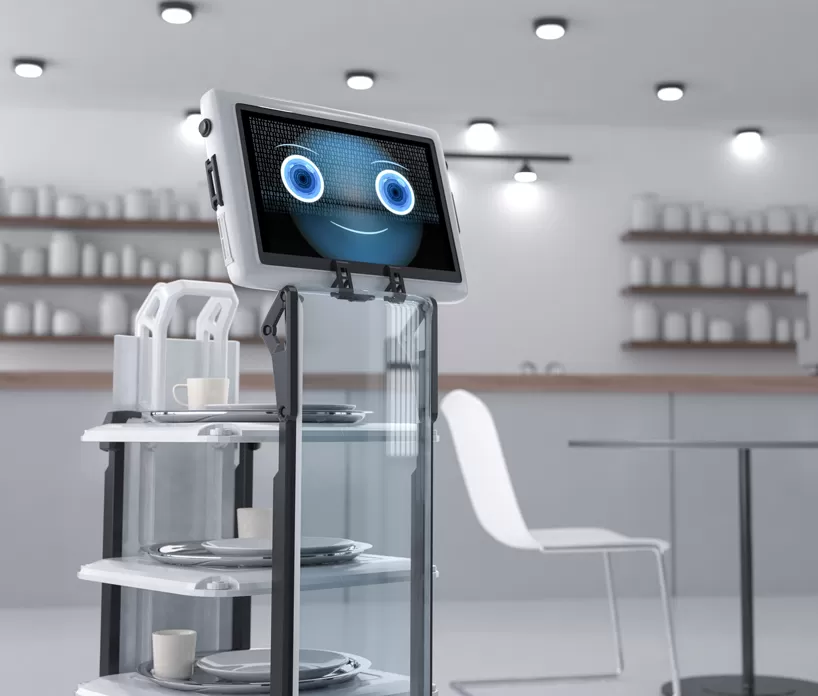The Future of Hospitality: Unveiling Quirky Trends & innovations
Hold onto your aprons because we're about to embark on a wild ride into the fascinating world of futuristic hospitality trends. As our hospitality students step into the evolving and dynamic realm of hospitality, it's essential for them to keep an eye on the horizon, where innovative trends are shaping the industry in ways both exciting and unexpected. Let's delve into the intriguing landscape of the future of hospitality, exploring unconventional trends that might very well become the norm and can be infused into their learning journey.
Robo-Chefs that Sizzle and Dazzle in Culinary Art:
Picture this: you're in the kitchen, prepping a 5-star feast for your hungry patrons. Suddenly, your robotic sous-chef slides next to you, gracefully chopping veggies and seasoning dishes with a level of precision that could rival a master chef. Robo-chefs are strutting their stuff in the kitchens of some avant-garde eateries. These AI-powered culinary geniuses are programmed to flip, fry, and flambé with finesse, ensuring that each dish is a delectable masterpiece.
Virtual Reality Dining Adventures:
Why travel the world for a culinary adventure when you can strap on a VR headset and be transported to the bustling streets of Bangkok, the serene vineyards of Tuscany, or even the bustling fish markets of Sydney – all while feasting on your favourite dish? Virtual reality dining is turning the tables on traditional dining experiences, allowing you to immerse yourself in a whole new world while savouring every bite. Imagine enjoying a steak while virtually traversing the Great Barrier Reef or relishing seafood while "sitting" at a virtual beachside shack. This immersive technology is redefining how patrons engage with food, ambience, and culture. For students studying the Certificate in Hospitality, VR dining might inspire them to explore creative ways of combining culinary excellence with cutting-edge technology.
Sustainability as a Core Ingredient:
In an era where eco-consciousness is not just a trend but a way of life, sustainable practices are permeating every facet of the hospitality industry. From embracing farm-to-table dining to restaurants powered by renewable energy sources, Australians are leading the charge in demonstrating that you can enjoy your Tim Tams guilt-free. Imagine sipping on a perfectly brewed flat white, knowing that the coffee beans were sourced from a local, environmentally friendly plantation. For hospitality students, this journey could mean diving into the world of ethical eats, waste wizardry, and recipes that high-five the Earth. Whether they're flipping fluffy pancakes or elegantly plating caprese salad, remember: every bite can be a tasty step towards a greener world!
Personalized Plates with a Side of AI:
Tired of spending precious minutes deciphering a menu? Say hello to AI-driven menus that know your palate better than your best friend. These digital menus use your dining history, preferences, and dietary needs to suggest dishes that'll make your taste buds dance the tango. And holographic waitstaff will be right there to guide you through the menu, making sure you don't confuse your salt and pepper calamari with your peppered steak.
The Rise of Pop-Up Experiences:
Who says dining should be confined to four walls? Pop-up dining experiences are transforming transient spaces into vibrant culinary destinations. From forests to rooftops, these temporary ventures offer patrons a unique and immersive dining environment. For students venturing into a hospitality career, the concept of pop-up experiences can spark their creativity, encouraging them to think beyond traditional restaurant settings.
The landscape of hospitality is undergoing remarkable transformations, defying predictability at every turn. For educators in the realm of hospitality training, there's a unique opportunity to captivate and invigorate students by introducing them to these unconventional trends and innovations. By guiding students to be attentive to these industry-shaping shifts, you can infuse their learning journey with relevance, excitement, and engagement. Encouraging them to explore these emerging phenomena and integrate them into their coursework will empower them to cultivate creativity and innovation, ultimately equipping them with the skills to stand out in the ever-evolving world of hospitality.
Remember, the future is an open menu.
- Susan Dennison


